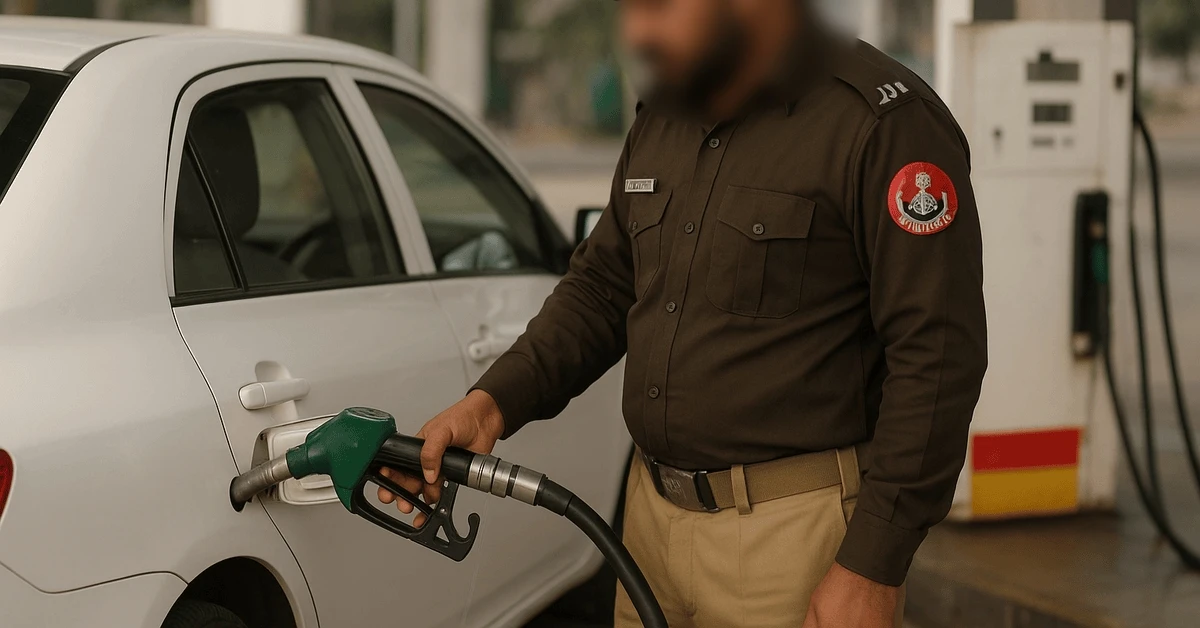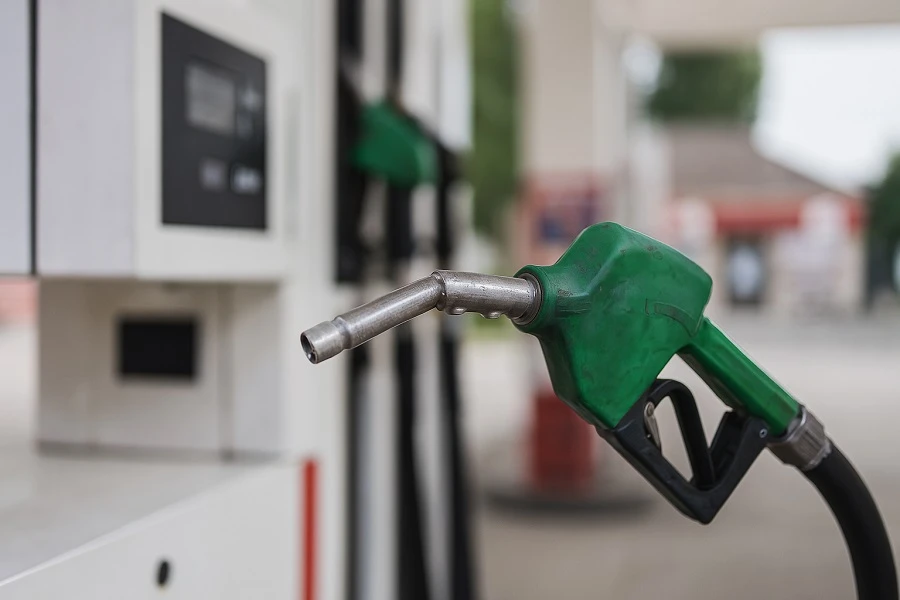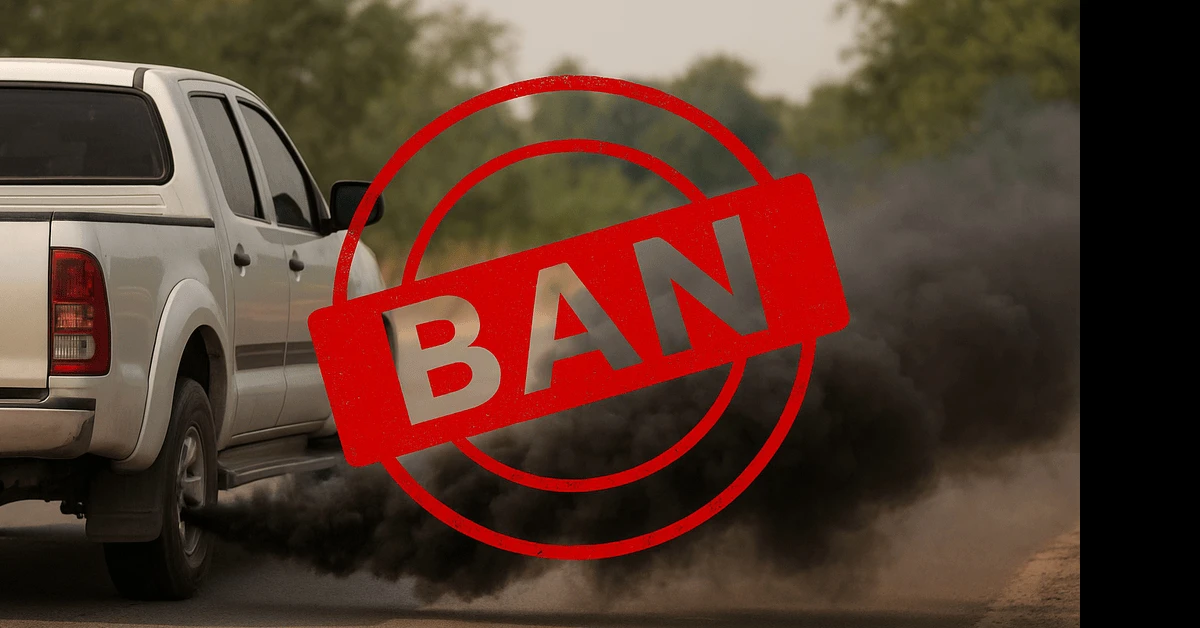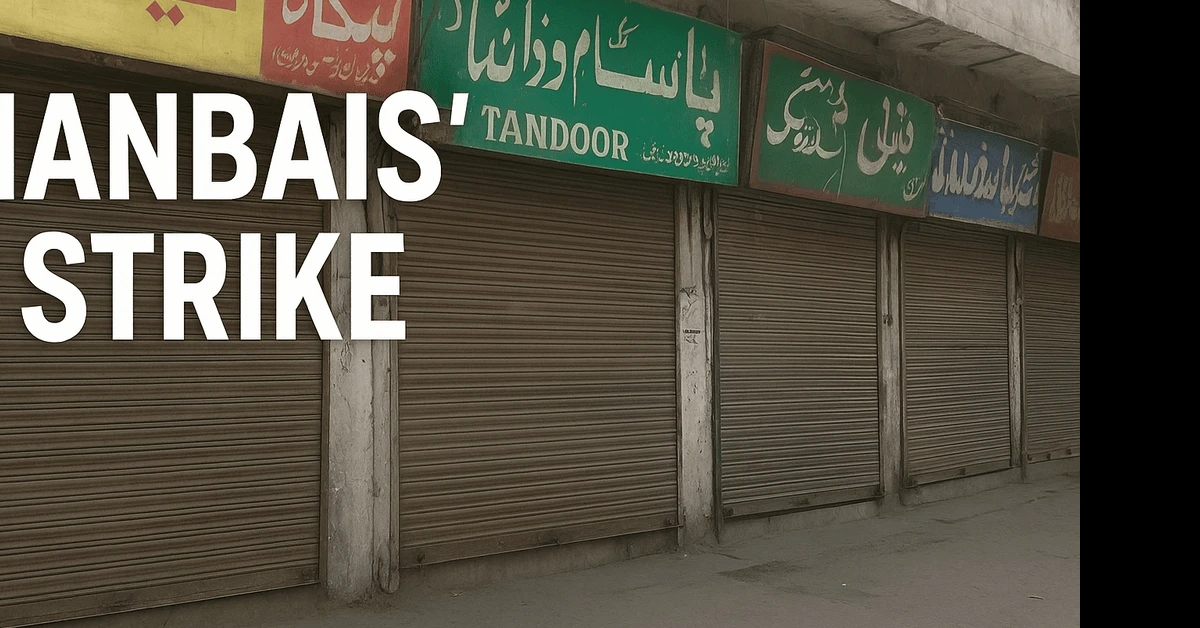Last Updated: November 20, 2025
Punjab Police Petrol Scam: Officer Allegedly Fills Rs 80,000 Fuel and Runs Away With Official Vehicle

A strange and troubling story has gone viral from Punjab, Pakistan: a Punjab Police constable allegedly used an official fuel card to fill petrol worth around Rs 80,000 and then ran away with the government vehicle instead of returning it to duty. While full official details have not yet been publicly confirmed, the incident has sparked intense debate about corruption, misuse of public resources and weak accountability inside police and other government departments.
In this article, we break down what is being reported so far, explain how the petrol and government vehicle system usually works, why misuse happens, what actions can be taken against such officers, and what this case reveals about the larger culture of fuel corruption in Pakistan.
What Is Being Alleged in the Punjab Police Petrol Case?
According to viral social media posts and discussion in different circles, the basic claim is:
- A Punjab Police officer / constable was given a government vehicle for official duty.
- He allegedly used the official petrol card or fuel allowance to fill petrol worth approximately Rs 80,000.
- Instead of returning after duty, he allegedly drove away with the vehicle and did not report back to the station.
- The incident was noticed when fuel bills and vehicle logs did not match normal usage, or when the officer did not return the vehicle on time.
At this stage, the story is mostly based on unofficial and semi-verified reports, which means the exact figures, identities and location may change once official updates are released. However, the pattern it highlights — fuel misuse and misuse of official vehicles — is sadly not new in our system.
How Official Petrol and Government Vehicles Normally Work
To understand why this incident is causing so much anger, it helps to know how petrol and official vehicles are supposed to be managed in departments like Punjab Police.
1. Government Vehicle Allocation
In many police stations and units:
- Vehicles (patrol cars, mobiles, motorcycles, pickups) are allocated to specific officers or shifts.
- Each vehicle has a logbook in which the staff is supposed to record:
- Starting kilometer reading
- Ending kilometer reading
- Route or area of duty
- Time out and time in
- In theory, supervisors are responsible for checking these logs to ensure no misuse occurs.
2. Petrol / Fuel Cards and Quotas
Instead of always paying cash, many government departments use:
- Fuel cards linked to specific vehicles or departments
- Monthly quotas for each vehicle, based on approximate distance and expected usage
- Petrol pumps authorised to provide fuel on credit, later billed to the department
The system is designed to:
- Make fuel management easier
- Reduce cash handling and leakage
- Create a record of each refueling
3. Where Misuse Creeps In
Unfortunately, in practice:
- Fuel cards can be used to fill other vehicles as well, including personal cars and bikes.
- Logs can be fudged or not maintained properly.
- Supervisors may look the other way as long as their own share or comfort is not disturbed.
So when people hear that one officer allegedly filled petrol worth Rs 80,000 and ran away, it fits into a bigger pattern of fuel misuse that citizens already suspect.
Why Is Rs 80,000 Petrol Such a Big Deal?
At first glance, some might say “vehicles need fuel anyway, what’s the big issue?” But there are several reasons why this figure has gone viral:
- Public money: This petrol is not private; it is paid from taxpayers’ money meant for public service.
- Scale of misuse: Rs 80,000 is not a small amount, especially in a time of inflation and high fuel prices.
- Symbol of a broken system: It reflects how casually some individuals treat government resources, as if they are a personal ATM.
- Trust in police: When the same department expected to protect citizens is seen exploiting public funds, it damages overall public confidence.
For an ordinary citizen, Rs 80,000 can represent months of hard work, school fees, rent or medical bills. Seeing this much fuel allegedly misused in a single incident naturally causes anger.
Possible Legal and Disciplinary Action Against the Officer
If the allegations are proven true through an internal inquiry and investigation, a Punjab Police officer involved in such an act can face:
1. Departmental Action
- Suspension from service during investigation
- Show-cause notice and departmental inquiry
- Demotion or removal from sensitive duty
- Dismissal from service in severe cases
2. Criminal Charges
Depending on the facts, the case may also involve:
- Criminal breach of trust
- Misappropriation of government property
- Theft or unauthorised use of official vehicle
- Fraud or cheating if forged signatures or false records were used
In such situations, an FIR can be registered against the officer, and the case can proceed in the same way as any criminal case, with arrest, investigation, and trial.
What This Incident Reveals About Fuel Misuse in Police and Government
Even if some specific details of this particular case change later, the story has gone viral because it connects to a wider, long-standing problem:
1. Weak Monitoring and Controls
Fuel use and vehicle logs often depend on:
- Manual entries in registers
- Signatures and stamps that can be casually added
- Supervisors who are overworked or sometimes complicit
This creates space for clever officers or staff to:
- Fill extra fuel beyond their legitimate duty requirement
- Use official fuel for personal work
- Share the benefit with petrol pump staff or others
2. Culture of “Chalta Hai”
Many citizens feel that in some departments a “chalta hai” (it’s okay) culture exists, where:
- Small leakages are ignored
- Fuel misuse is considered a “perquisite of the job”
- Only extreme cases, like someone running away with the vehicle, attract attention
This mindset makes it harder to implement strict controls, because misuse is not always seen as a serious crime inside the system.
3. Impact on Public Service
When fuel and vehicles are misused:
- Less fuel is available for genuine patrolling and emergency response.
- Stations may have vehicles “out of order” or “no petrol” when citizens need help.
- Overall quality of law and order suffers, and citizens end up paying the price indirectly.
How Can Such Misuse Be Reduced?
This case has triggered fresh calls for reforms. Some practical steps that can help reduce such abuse include:
1. Digital Fuel Management
- Use of smart fuel cards linked to specific vehicles with mileage tracking
- SMS or app alerts to supervisors whenever a large refuel happens
- Automatic flagging of unusual patterns, such as repeated high-value fills
2. GPS and Vehicle Tracking
- Installing GPS devices in official vehicles to monitor movement
- Matching GPS route data with fuel usage and duty logs
- Immediate alerts if a vehicle leaves its assigned zone for too long
3. Regular Third-Party Audits
- Independent audits of fuel bills, logbooks and duty rosters
- Random checks at fuel stations used by government departments
- Strict penalties for both staff and fuel pumps involved in fraudulent billing
4. Strong Example-Setting
One of the most effective tools is making an example of those caught:
- Suspending and prosecuting officers involved in blatant misuse
- Publicising disciplinary actions internally to send a clear message
- Protecting whistleblowers who report misuse from inside the department
What Citizens Should Keep in Mind
For citizens reading and sharing this story, a few key points are important:
- Wait for official confirmation: Viral posts often mix facts and rumours. Final numbers and details may change after an inquiry.
- Focus on the issue, not just individuals: Even if one officer is punished, the bigger goal should be improving the system so that misuse becomes difficult for anyone.
- Use your voice responsibly: Raising questions about public money and demanding transparency is your right, but avoid spreading unverified or exaggerated claims about specific people.
Key Takeaways From the Rs 80,000 Petrol Incident
- A Punjab Police officer is alleged to have filled petrol worth around Rs 80,000 on an official fuel card and run away with the government vehicle.
- The story is still developing and mainly based on viral reports; official, detailed confirmation is awaited.
- The case has brought renewed attention to fuel misuse, vehicle misuse and corruption inside government departments.
- If proven, the officer could face departmental punishment and criminal charges for misusing public resources.
- The incident underlines the need for digital fuel management, GPS tracking, strict audits and stronger accountability to protect public funds.
Whether this particular case becomes a high-profile example or quietly fades after an internal inquiry, it serves as a reminder that citizens must keep demanding transparency, accountability and clean governance in every department, including the police.
FAQs About the Punjab Police Petrol and Vehicle Misuse Incident
What exactly is the Punjab Police petrol incident about?
The viral story claims that a Punjab Police officer filled petrol worth about Rs 80,000 on an official fuel card and then ran away with the government vehicle instead of returning it to the station or duty point. Detailed official confirmation is still awaited.
Has the Punjab government or police officially confirmed the story?
At the time of writing, the incident is mainly known through viral social media posts and informal reports. Official statements, if any, may confirm, deny, or modify the details such as the exact amount, identity of the officer, and current status of the vehicle.
Why is Rs 80,000 petrol such a big issue?
Because it is public money, not private. Rs 80,000 worth of fuel represents a significant misuse of taxpayer funds, especially in a country where many people struggle with high fuel prices, inflation, and low incomes.
Can a single officer really misuse that much fuel?
In systems with weak oversight, it is possible for officers to:
- Fill extra fuel in the same vehicle several times
- Use the fuel card to fill personal or unrelated vehicles
- Exploit loopholes where logs and approvals are not strictly checked
What kind of punishment can the officer face if found guilty?
If the enquiry proves the allegations, the officer can face:
- Suspension or dismissal from service
- Departmental penalties like loss of rank or benefits
- Criminal charges such as breach of trust, theft or misappropriation of government property
Does this kind of misuse happen only in police?
No. Fuel and vehicle misuse can occur in many government departments that have official vehicles and fuel budgets. The police case gets more attention because the public expects stricter discipline from law enforcement agencies.
How can fuel corruption in government vehicles be reduced?
Some of the most effective measures include:
- Using digital fuel cards and real-time monitoring
- Installing GPS trackers in official vehicles
- Conducting regular audits of fuel and mileage data
- Taking strong action against those caught misusing petrol or vehicles
What should citizens do when such stories appear online?
Citizens should:
- Follow reliable news sources for updates
- Demand transparency and accountability from authorities
- Avoid spreading unverified details about specific individuals
The goal should be to fix the system and protect public money, not just to share sensational headlines.
You May Also Like:

Mobile with Official Warranty in Pakistan: The Full Truth, Risks, Myths, and How to Verify a Genuine...

How to File an Online FIR in Pakistan: Complete Guide for Punjab, Sindh, KP and Islamabad...

How Scam Apps, Fake Jobs & Social Media Scams Are Looting Pakistanis in the Name of Online Earning...

Petrol Price Drop in Pakistan on April 16, 2025: What You Need to Know...

Islamabad Launches Vehicle Smoke-Emission Ban to Tackle Winter Smog...

Best Phones Under 45,000 in Pakistan for PUBG and Gaming (2025 Guide)...

Best Samsung Phones Under 50,000 in Pakistan (2025 Guide)...

